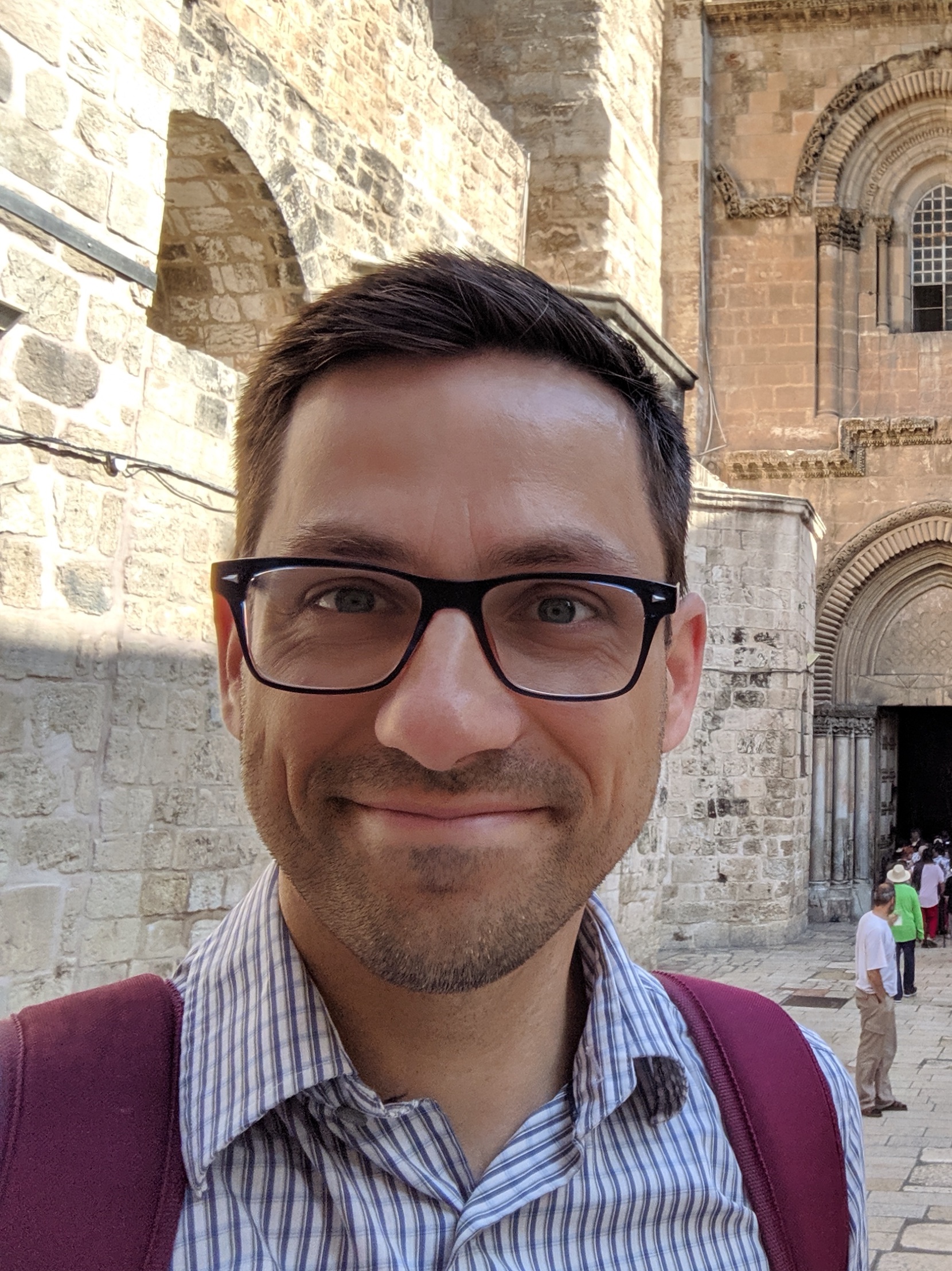
Gospel Contemplation, Wednesday Meditation for Advent 2023
Written by Dr. Benjamin Norquist, CMEP Ambassador Warren Clark Fellow (AWCF)
Readings:
Hebrews 10:32-38 | Mark 9:33-41
At that time, Jesus and his disciples came to Capernaum, and when he was in the house, he asked them, “What were you discussing on the way?” But they were silent; for on the way, they had discussed with one another who was the greatest. And he sat down and called the twelve; and he said to them, “If anyone would be first, he must be last of all and servant of all.” And he took a child, and put him in the midst of them; and taking him in his arms, he said to them, “Whoever receives one such child in my name receives me; and whoever receives me, receives not me but him who sent me.”
John said to him, “Teacher, we saw a man casting out demons in your name, and we forbade him because he was not following us.” But Jesus said, “Do not forbid him; for no one who does a mighty work in my name will be able soon after to speak evil of me. For he that is not against us is for us. For truly, I say to you, whoever gives you a cup of water to drink because you bear the name of Christ, will by no means lose his reward.”
Mark 9:33-41
—
Have you ever wondered what it would have been like to live in Jesus’ day and to be among his disciples? Today, I invite you to imagine just that.
The spiritual practice of gospel contemplation is a form of prayer in which you imagine that you are present with Jesus in a story from the Gospels. By envisioning yourself physically in the room with Jesus, the words will be transformed into the language of your heart, and your spirit will be opened more widely to Jesus’ ministry to you today.
Begin by reading the passage from Mark reflectively. Now, read the passage again, then set the text aside, and contemplate the scene:
- Jesus has arrived in Capernaum with his disciples, and he asks them a simple question. Knowing that the answer is awkward, the disciples are silent and perhaps embarrassed. Of course, Jesus knows the answer already, but his next comments are not a rebuke so much as kind guidance.
- As you reflect on the unfolding story, imagine you are there, literally and physically present. You walked with Jesus and his disciples earlier that day, and you have now arrived in the house. Look around the room. What do you see? Hear? Smell? When Jesus asks what the disciples are talking about, he is asking you too. How do you respond?
- As the experience proceeds, Jesus brings a child into the middle of the room. Where does the child come from? Do you know the child? What is going through your mind as Jesus proceeds to teach you about what it means to be great in His kingdom?
- Then the topic turns when John asks a new question. As you hear Jesus’ response, does it seem to be a new topic, or is it part of Jesus’ earlier teaching about greatness and humility?
- These moments in the house with Jesus seem informal and conversational. Do you have a question you want to ask Jesus? What might it be? As the story unfolds, notice details you’ve never seen before.
As with all spiritual practices, the purpose of gospel contemplation is to place yourself into God’s forming hands. With this particular practice, it is not about using your imagination to control or conjure up a scene – but allowing God to use your imagination to speak more deeply to your heart, mind, and spirit about who God is and to see the world by God’s light.

About the Author: Ben is a researcher and public organizer. Inspired by his study of higher education in Palestine, Ben currently works on the ways educational and epistemological structures develop responsively to physical landscapes, especially those that are highly configured and imposed. In his local community, Ben helps churches engage more thoughtfully with Native communities and come to terms with histories of injustice.
Ben holds his Ph.D. in Higher Education from Azusa Pacific University (Los Angeles) and his M.A. in Liberal Arts from St. John’s College (Annapolis). Ben’s dissertation is a qualitative project exploring adaptive Palestinian approaches to pedagogy.
In his career in higher education leadership, Ben has experience building international educational partnerships, teaching, and establishing an academic center for applied public research.

